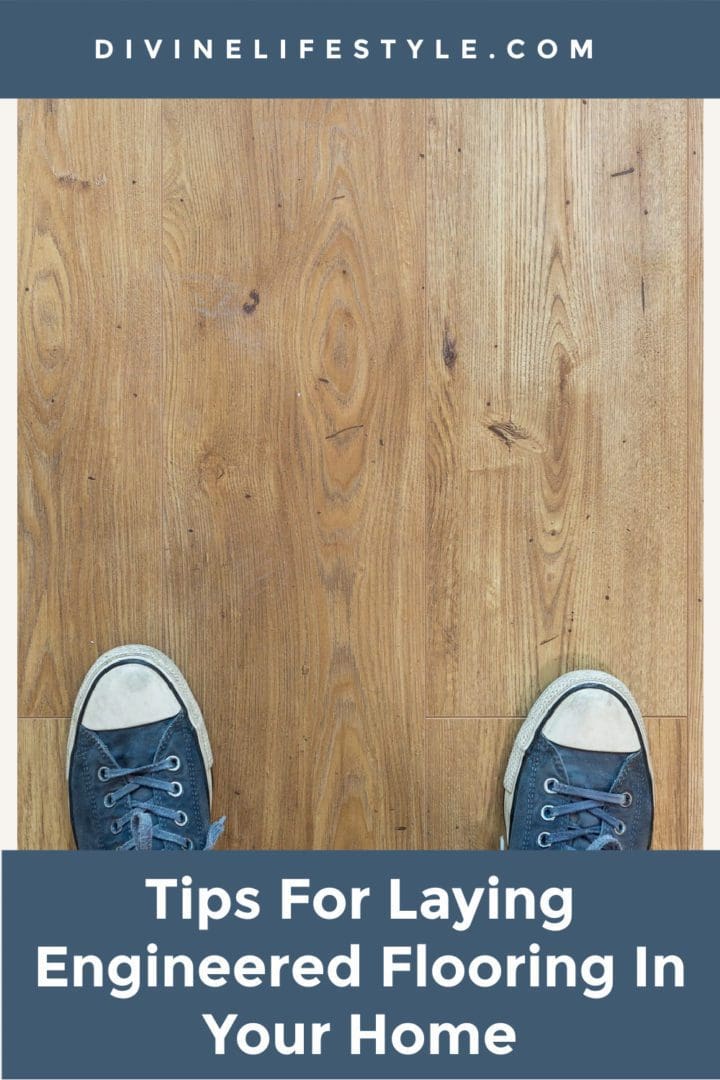Getting Ready for Fall with Tide Pods
This Tide Pods post is part of a sponsored campaign with Socialstars. #TideThat We are a family that has a lot of laundry. When I say a lot, I meant that there are always...
If you are someone who enjoys a good DIY project, then you have probably redecorated your home from time to time over the years. Laying flooring in your living room or bedroom is often perceived as a tricky DIY task by even some of the more enthusiastic home renovators, but if you can manage it properly, it can be easier than you think and can save you a lot of money compared to hiring a professional. Even cleaning hardwood floors can have its challenges. Engineered wood flooring is relatively straightforward to lay in your home, but there are some things that you should consider before getting started. Read on to hear our tips on How to Install Engineered Hardwood Flooring.

First things first, you need to make sure that you have the right equipment and tools to properly lay your engineered flooring. This includes some high-quality engineered floorboards from a leading retailer. If you’ve got those already, you’ll need other items including PVA glue, a measuring tape, underlay, a hand saw, and a few other key items.
In addition to the basic tools and materials, consider specialized adhesives as aside from PVA glue AU industrial contact adhesives can be a valuable addition. If you need a strong and reliable bond for high-traffic areas or challenging surfaces. A durable and long-lasting adhesive is especially beneficial for maintaining the integrity of your engineered flooring over time. Make sure to choose an adhesive that matches the specific needs of your flooring installation to achieve the best results.
Laying engineered flooring isn’t the kind of project that you just dive into, you need to make sure that you are checking the site before getting started. This includes ensuring that the room is of the right temperature before placing the floorboards on there. You also need to ensure that the sub-floors are tested for moisture and that the air humidity is between 45-65%. Do the checks and you’ll thank yourself later.
Have you allocated some time for your floorboards to acclimatize to the moisture levels in your home? If the answer to this question is no, then you need to do this as soon as possible. According to the experts, you should ensure you leave around 5-7 days to allow your engineered wood floor to acclimatize. If you don’t spend time doing this, you could find that it moves in the future.
Finally, you should make sure that you check every single board before you lay it on your floor. Wooden boards can have some natural imperfections and while you still might want to use these in some areas of your home, it doesn’t hurt to know about them before they are already in there. Additionally, you should have a few boxes open at the same time so that you can arrange the colors on your floor to your liking. You might find that the shades differ, even if you got your engineered flooring from the same retailer.
If you are planning a fun DIY project, then you should try to take on board all of the tips that we have given you in this article. Think about everything from the tools that you will need to get the job done to the period that you need to leave the boards to acclimatize in the room. If you can follow these tips, you should be able to pull off this project easily enough. We hope that this How to Install Engineered Hardwood Flooring post inspires you. Good luck!

Comments are closed.
Pingback: 10 smart financial habits for homeowners money tips
Pingback: Ideas for Incorporating Big and Small Sustainable Life Choices
Pingback: Home Improvement Tips for First-Time Homeowners